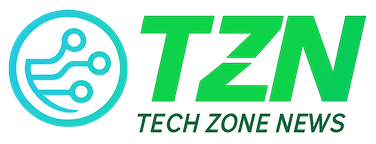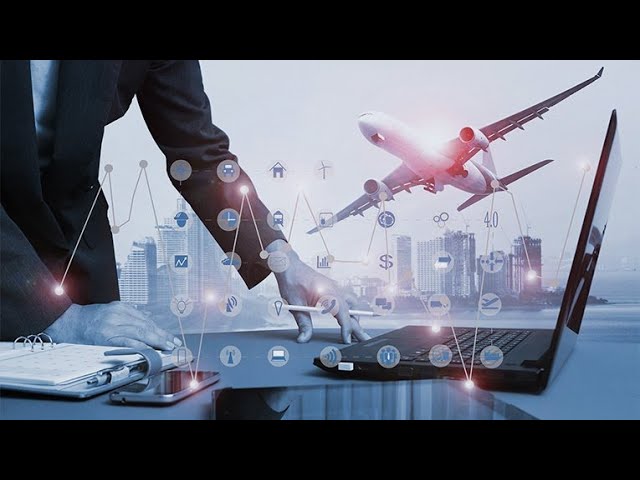Industria globale e aviacionit po kalon transformime të mëdha në vitin 2025, me sfida financiare, ndryshime politike, dixhitalizim dhe bashkime të linjave ajrore që po formësojnë peizazhin. Tregjet e SHBA dhe Evropës po përjetojnë turbulenca për shkak të pasigurisë ekonomike, grevave dhe pritshmërive të ndryshuara të udhëtarëve. Më poshtë, një pasqyrë e detajuar e zhvillimeve më të fundit.
Sfidat Financiare dhe Kërkesa në Ndryshim
Linjat ajrore në SHBA dhe Evropë kanë pasur nevojë të rishikojnë parashikimet financiare për shkak të ndryshimeve në kërkesë dhe situatës ekonomike.
- Rënia e të Ardhurave për Linjat Ajrore të SHBA-së: Transportuesit kryesorë amerikanë, përfshirë Delta Air Lines dhe American Airlines, kanë ulur pritshmëritë për të ardhurat e tremujorit të parë. Delta ka atribuar humbjet në të ardhura për mot ekstrem, uljen e udhëtimeve biznesi dhe shqetësime të konsumatorëve pas incidenteve ajrore. American Airlines raportoi gjithashtu një humbje më të madhe se e pritur, duke cituar kërkesën më të ulët për udhëtime argëtimi.
- Fluktuacione të Tregut për Linjat Evropiane: Në Evropë, transportues si Lufthansa, Air France-KLM dhe Ryanair po përshtaten me sfida të ngjashme, me çmimet e karburanteve dhe pasigurinë ekonomike që ndikojnë në fitim. Linjat buxhetore, të cilat më parë lulëzonin nga volumet e larta të pasagjerëve, po përballen me konkurrencë më të madhe dhe ndryshime në modelet e udhëtimit pas pandemisë.
Grevat e Punonjësve Shkatërrojnë Udhëtimet Evropiane
Konfliktet e punës kanë shkaktuar ndërprerje të mëdha për udhëtarët evropianë, me greva që kanë prekur disa nga aeroportet më të mëdha të kontinentit.
- Një grevë 24-orëshe e organizuar nga punonjësit shërbimeve gjermane çoi në anulimin e mbi 1,000 fluturimeve në aeroporte kyçe si Frankfurt dhe Mynih, duke ndikuar tek gjysma e milionit udhëtarëve.
- Sindikata Ver.di kërkon paga më të larta, më shumë ditë pushimi dhe bonuse më të mira, duke cituar inflacionin dhe ngarkesën e rritur të punës.
- Punonjës të tjerë të linjave ajrore evropiane, përfshirë kontrollorët e trafikut ajror dhe stafin tokësor, gjithashtu kanë organizuar protesta, duke vënë presion shtesë mbi linjat ajrore për të përmbushur kërkesat pa komprometuar fitimin.
Ndërkohë, linjat ajrore amerikane kanë shmangur kryesisht greva të mëdha në 2025, megjithëse negociatat për kontratat e pilotëve mbeten një çështje kyçe për disa transportues.
Ndryshimet Politike: Tarifa të Reja për Bagazhet dhe Boarding Dixhital
Politikat për pasagjerët po ndryshojnë ndërsa linjat ajrore kërkojnë mënyra të reja për të rritur të ardhurat dhe për të përmirësuar eficiencën.
- Southwest Airlines përfundon bagazhet e regjistruara falas: Nga maji, Southwest Airlines – më parë një nga pak linjat që ofronte bagazhe falas – do të vendosë tarifa për udhëtarët jo biznes dhe jo pjesëmarrës të programeve të besnikërisë.
- Ryanair heq kartat e boardingut në letër: Linja evropiane buxhetore do të shkojë plotësisht dixhitale në nëntor, duke kërkuar që të gjithë pasagjerët të përdorin boardinget mobile. Ky hap synon uljen e kostove dhe përmirësimin e eficiencës, por ngre shqetësime për aksesin e udhëtarëve pa smartphone.
Këto ndryshime pasqyrojnë një trend më të gjerë ku linjat ajrore po përdorin dixhitalizimin dhe modelet e reja të çmimeve për të maksimizuar fitimet në një industri konkurruese.
Bashkimet dhe Riorganizimet Strategjike
Konsolidimi i linjave ajrore po përshpejtohet ndërsa transportuesit kërkojnë të forcojnë pozicionet e tyre në treg përmes bashkimeve dhe blerjeve.
- Alaska Airlines blen Hawaiian Airlines: Ky marrëveshje 1.9 miliard dollarëshe lejon Alaska Airlines të zgjerojë rrjetin ndërkombëtar duke mbajtur Hawaiian Airlines si një markë të veçantë.
- Korean Air përfundon bashkimin me Asiana Airlines: Bashkimi e bën Korean Air linjën e 12-të më të madhe globalisht, duke konsoliduar rrugët dhe operacionet e flotës.
- Privatizimi i TAP Air Portugal: Air France-KLM, Lufthansa dhe IAG po garojnë për një pjesë të TAP ndërsa qeveria portugeze ecën përpara me planet e privatizimit.
- Investimi i Lufthansa në airBaltic: Lufthansa ka marrë një pjesë minoritare në transportuesin leton dhe po eksploron investime të tjera në Air Europa të Spanjës së bashku me Air France-KLM.
Këto lëvizje tregojnë se si linjat ajrore po gjejnë mënyra për të rritur aktivitetin pa u përballur me sfida të mëdha rregullatore që shoqërohen me bashkime të plota.
Modernizimi i Flotës dhe Qëllimet e Qëndrueshmërisë
Linjat ajrore në SHBA dhe Evropë po investojnë në avionë të rinj për të përmirësuar eficiencën e karburantit dhe qëndrueshmërinë.
- Eurowings porosit 40 Boeing 737 MAX 8: Linja planifikon të zëvendësojë modelet e vjetra Airbus për të rritur eficiencën operacionale.
- Transportuesit amerikanë rrisin përdorimin e karburantit të qëndrueshëm: Linjat si United dhe Delta po rrisin përdorimin e karburantit të aviacionit të qëndrueshëm (SAF) për të arritur objektivat mjedisore.
Me rritjen e çmimeve të karburantit dhe rregullime më të rrepta për emetimet, linjat ajrore po përqendrohen në flota më të gjelbra dhe burime alternative karburanti për të ulur shpenzimet afatgjata.
Industria e aviacionit në 2025 po formësohet nga presionet financiare, politikat e reja, konfliktet e punës dhe bashkimet. Transportuesit amerikanë po menaxhojnë të ardhura në rënie dhe rregullime çmimesh, ndërsa linjat evropiane përballen me pakënaqësi të punonjësve dhe marrëveshje të mëdha privatizimi.
Për udhëtarët, këto ndryshime nënkuptojnë rritje të mundshme të kostove të udhëtimit, shërbime më të pakta falas dhe varësi më të madhe nga mjetet dixhitale. Megjithatë, rrjetet e zgjeruara të linjave, përmirësimet e flotës dhe përpjekjet për qëndrueshmëri mund të çojnë gjithashtu në një përvojë udhëtimi më efikase dhe më miqësore ndaj mjedisit në të ardhmen.




